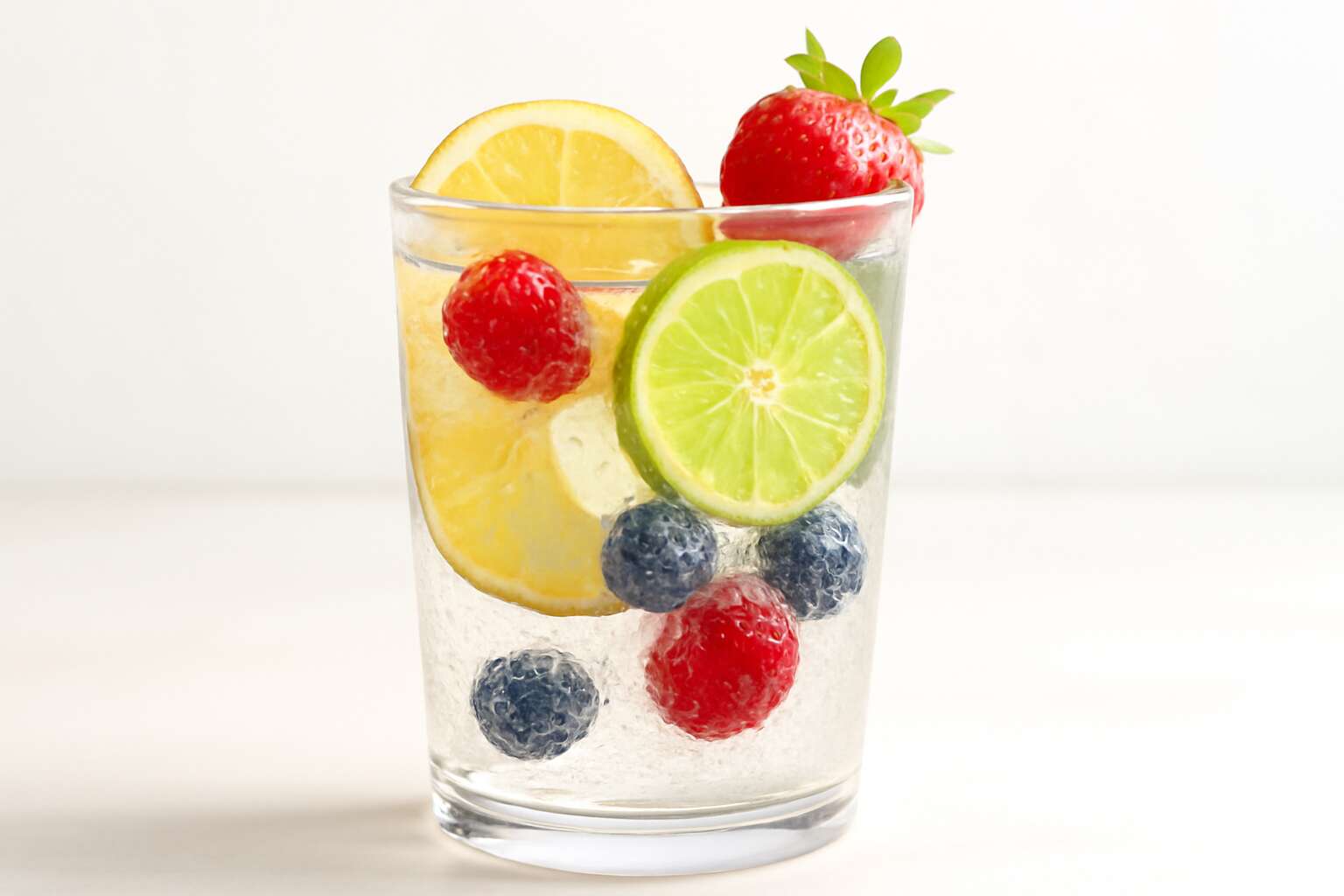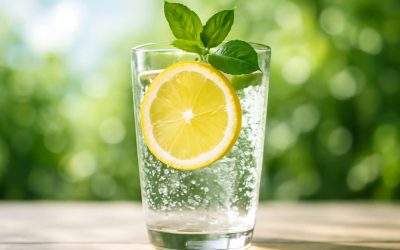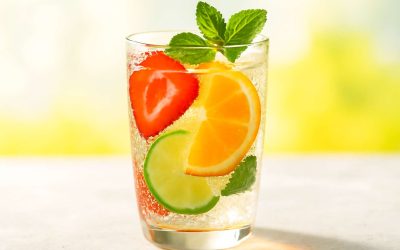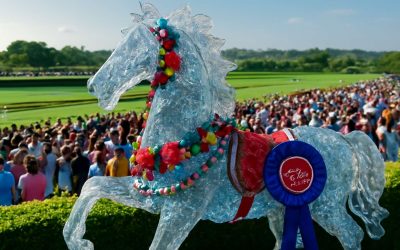Understanding Flavored Sparkling Water
What Is Flavored Sparkling Water? – Definition and key characteristics
In the murky depths of the beverage world, flavored sparkling water emerges as a shimmering specter—an alluring alternative to sugary sodas and plain water alike. It’s a symphony of effervescent charm, infused with tantalizing flavors that dance on the palate, yet often cloaked in mystery. The question that haunts many is: does flavored sparkling water have artificial sweeteners? This query is not merely academic but a crucial consideration for those seeking a healthier, yet equally satisfying, sip.
To understand this enigmatic elixir, one must examine its essence. Flavored sparkling water is essentially carbonated water infused with natural or artificial flavors. These beverages often boast a crisp, refreshing profile that appeals to the modern palate, craving excitement without the heaviness of sugar. But beware—many brands add artificial sweeteners to enhance sweetness without adding calories. Some common sweeteners include aspartame, sucralose, or acesulfame potassium, which can lurk behind the tantalizing flavors like shadows in the fog.
So, does flavored sparkling water have artificial sweeteners? The answer varies. Many products do incorporate them, especially those marketed as diet or zero-calorie beverages. However, there are also naturally flavored options that avoid artificial additives altogether. For the discerning consumer, reading labels becomes an act of uncovering secrets—deciphering whether the sparkling water they sip is a pristine, untainted potion or one laced with synthetic sweetness.
Types of Flavored Sparkling Water – Natural flavors, unnatural flavors, and variations
Flavored sparkling water exists in a fascinating spectrum, oscillating between the natural and the synthetic. Its allure lies in the delicate balance of flavors—some derived from pure, plant-based extracts, while others are concocted through laboratory precision, often employing artificial ingredients. When considering whether flavored sparkling water has artificial sweeteners, it’s essential to understand the distinctions between these varieties.
Natural flavor variants typically avoid synthetic additives, relying instead on extracts like lemon zest or berry infusion. Conversely, many commercially available options—especially those marketed as diet or zero-calorie—incorporate artificial sweeteners such as aspartame, sucralose, or acesulfame potassium. These ingredients serve to enhance sweetness without adding calories, but they also introduce a layer of complexity for consumers seeking unadulterated hydration.
Often, the choice hinges on the brand and product line. Some brands emphasize purity, offering flavored sparkling water with only natural flavors and no artificial sweeteners. Others prioritize taste and market heavily on low-calorie labels, making the presence of synthetic sweeteners almost unavoidable. To navigate this landscape, one must scrutinize the ingredients list meticulously, as it reveals whether the sparkling water is infused with artificial sweeteners or remains free of synthetic additives.
Popularity and Consumer Appeal – Why people choose flavored sparkling water
Flavored sparkling water’s rise in popularity isn’t just a trend; it’s a reflection of changing consumer preferences. People want hydration that’s both tasty and low-calorie, making flavored options especially appealing. But many wonder, does flavored sparkling water have artificial sweeteners? The answer varies. Some brands use natural flavorings, appealing to those seeking pure ingredients. Others, particularly diet or zero-calorie lines, often incorporate artificial sweeteners like aspartame or sucralose to enhance sweetness without adding calories.
Consumers are increasingly scrutinizing ingredient lists to understand what’s in their drinks. For some, the presence of artificial sweeteners is a dealbreaker. For others, the choice depends on taste and calorie content. Interestingly, flavor intensity and perceived sweetness can differ, influenced heavily by the presence of these synthetic additives. As a result, the debate over whether flavored sparkling water has artificial sweeteners continues to shape purchasing decisions and product formulations across South Africa.
Artificial Sweeteners in Beverages
Common Types of Artificial Sweeteners – Aspartame, sucralose, saccharin, and acesulfame potassium
Artificial sweeteners have become a common ingredient in many beverages, including flavored sparkling water. These tiny chemical compounds mimic the sweetness of sugar without adding calories, making them appealing to health-conscious consumers. But the question remains: does flavored sparkling water have artificial sweeteners? The answer varies depending on the brand and product line. Some brands opt for natural sweeteners or no sweeteners at all, while others rely on artificial options to achieve that perfectly balanced taste.
Common types of artificial sweeteners used in beverages include aspartame, sucralose, saccharin, and acesulfame potassium. Each of these has its unique profile and sweetness intensity. For instance, aspartame is often found in diet sodas, but it’s also used in some flavored sparkling waters. Sucralose, known under the brand name Splenda, is another popular choice, valued for its stability under various conditions. Saccharin, one of the oldest artificial sweeteners, still appears in some beverages, while acesulfame potassium offers a bitter-free sweetness that complements other sweeteners well.
- Aspartame: Known for its intense sweetness, but some consumers prefer to avoid it due to health concerns.
- Sucralose: Heat-stable and zero-calorie, making it a common choice for sparkling water manufacturers.
- Saccharin: An older sweetener with a distinct taste, still used in some niche products.
- Acesulfame potassium: Often combined with other sweeteners to enhance flavor without added calories.
Given these options, it’s understandable why many ask, “does flavored sparkling water have artificial sweeteners?” The truth is, some brands do include them to deliver that satisfying sweetness, while others proudly promote their use of natural or no sweeteners at all. Always checking labels can help consumers make informed choices aligned with their health preferences.
Natural vs. Artificial Sweeteners – Differences and health considerations
In a world obsessed with calorie-conscious choices, flavored sparkling water has become the beverage equivalent of a guilt-free indulgence. But the burning question remains—does flavored sparkling water have artificial sweeteners? The answer isn’t a one-size-fits-all; it’s more like a choose-your-own-adventure. Some brands embrace the natural route with stevia or fruit extracts, proudly touting their lack of artificial ingredients. Others opt for the sweet, synthetic allure of artificial sweeteners to craft that perfect, lips-licking taste.
Artificial sweeteners such as aspartame, sucralose, saccharin, and acesulfame potassium are the secret ingredients behind many flavored sparkling waters. These tiny compounds are used to mimic sugar’s sweetness without the caloric baggage, making them a favorite among dieters and flavor fiends alike. But the question of whether these waters contain artificial sweeteners depends heavily on the brand’s philosophy. For consumers seeking transparency, a quick label scan reveals whether their sparkling water is naturally sweetened or chemically enhanced.
- Some brands choose to keep it natural, using only fruit extracts, herbal infusions, or no sweeteners at all.
- Others rely on artificial sweeteners for that “just right” taste—sometimes to the point where you’d swear it’s the real thing.
Whether you’re team natural or team artificial, understanding what’s in your bubbly beverage is key. After all, the debate over does flavored sparkling water have artificial sweeteners is ongoing, but the power to choose lies firmly in your hands—label in hand, sip in mouth, decision made.
Regulatory Perspective – FDA and other authorities’ stance on artificial sweeteners
The regulatory landscape surrounding artificial sweeteners in beverages is complex and often misunderstood. The U.S. Food and Drug Administration (FDA) has approved some artificial sweeteners—such as aspartame, sucralose, saccharin, and acesulfame potassium—for use in food and beverages, but this approval comes with strict guidelines. These compounds are deemed safe within specified daily intake limits, a point often emphasized in official documents. However, the question of whether does flavored sparkling water have artificial sweeteners remains a hot topic among consumers and health advocates alike.
To ensure safety, authorities like the FDA continually monitor scientific research and consumer reports, adjusting regulations accordingly. Some brands disclose their artificial sweetener use transparently on labels, aligning with regulatory requirements. Others, however, may opt for natural alternatives or omit sweeteners altogether to appeal to health-conscious buyers. Ultimately, understanding whether does flavored sparkling water have artificial sweeteners hinges on scrutinizing labels and trusting regulatory oversight—an essential step for informed consumption in South Africa and beyond.
Does Flavored Sparkling Water Contain Artificial Sweeteners?
Analyzing Product Labels – How to identify artificial sweeteners on ingredient lists
When pondering the question, “does flavored sparkling water have artificial sweeteners,” the answer often hinges on a quick scan of the product label. As consumers become more discerning, understanding how to identify these sweeteners on ingredient lists is crucial. Manufacturers sometimes hide their use of artificial sweeteners behind scientific-sounding names, making it a challenge to decipher the true composition of each beverage.
To unmask these hidden ingredients, look for specific terms such as aspartame, sucralose, saccharin, or acesulfame potassium. These are the usual suspects when it comes to artificial sweeteners in flavored sparkling water. An easy way to navigate this labyrinth of labels is to keep an eye out for these names, especially if you prefer to avoid artificial additives. For those who want a natural experience, brands often highlight “no artificial sweeteners” on their packaging, providing a beacon of clarity amidst a sea of labels.
Brands and Their Formulations – Overview of popular brands and their use of sweeteners
Amidst the shimmering allure of flavored sparkling water, a shadowy question persists in the minds of discerning consumers: does flavored sparkling water have artificial sweeteners? As the market swells with vibrant cans and bottles, the answer varies as fiercely as the flavors themselves. Some brands, cloaked in transparency, proudly declare “no artificial sweeteners,” offering a pure, unadulterated sip of nature’s bounty. Others, however, mask their secret ingredients behind a labyrinth of scientific-sounding names, leaving consumers to decipher the true nature of their beverage.
Popular brands such as LaCroix, San Pellegrino, and Perrier often steer clear of artificial sweeteners, opting instead for natural flavors derived from fruit extracts. Conversely, many craft or flavored sparkling waters, especially those with a sweeter profile, lean on artificial sweeteners like aspartame, sucralose, or acesulfame potassium to achieve that perfect balance of taste and effervescence. To truly understand whether a particular beverage contains artificial sweeteners, one must examine the ingredient list with a keen eye—an essential ritual in the quest to avoid hidden additives.
Variations in Products – Why some flavored sparkling waters contain sweeteners and others do not
In the shimmering world of flavored sparkling water, a question lingers like a whisper in a breeze—does flavored sparkling water have artificial sweeteners? The answer is as diverse as the array of flavors that dance within each bottle. Some brands, driven by a commitment to purity, proudly declare “no artificial sweeteners,” offering a crisp, untainted experience of nature’s essence. Others, however, cloak their formulations in scientific-sounding names, leaving consumers to decipher whether their favorite beverage is truly free from synthetic additives.
Why do some flavored sparkling waters contain sweeteners while others do not? The difference often boils down to the desired taste profile and market positioning. Sweetened variants frequently employ artificial sweeteners such as aspartame, sucralose, or acesulfame potassium to achieve a satisfyingly sweet note without the caloric baggage. Conversely, brands emphasizing natural ingredients rely on fruit extracts and natural flavors, steering clear of synthetic substitutes.
- Natural flavors derived from fruit extracts
- Artificial sweeteners like sucralose or aspartame
For those scrutinizing labels, understanding the ingredients list becomes a vital ritual in uncovering whether a beverage contains artificial sweeteners, ensuring transparency in every sip enjoyed.
Health and Dietary Considerations
Potential Benefits of Artificial Sweeteners – Weight management, diabetic-friendly options
For health-conscious consumers, the question often arises: does flavored sparkling water have artificial sweeteners? The answer isn’t always straightforward. Many brands craft their products to appeal to those seeking a guilt-free refreshment, but the inclusion of artificial sweeteners can vary widely. These sweeteners, like aspartame or sucralose, are used to mimic sugar’s sweetness without the calories, making them popular in weight management strategies.
Some consumers find that artificial sweeteners help them maintain their dietary goals, especially for diabetic-friendly options. They enable enjoyment of flavored sparkling water without spiking blood sugar levels, offering a seemingly perfect solution. However, it’s essential to scrutinize product labels carefully. In some cases, manufacturers include these sweeteners to enhance taste and prolong shelf life. So, does flavored sparkling water have artificial sweeteners? The answer depends on the brand and formulation, but awareness remains key for those with specific health concerns or preferences.
Possible Risks and Controversies – Health concerns and ongoing research
While many savor the crisp, invigorating taste of flavored sparkling water, questions about health implications often linger. One concern that surfaces repeatedly is: does flavored sparkling water have artificial sweeteners? This question is vital, especially for those mindful of what they consume daily. Artificial sweeteners like aspartame, sucralose, or saccharin are frequently used in these beverages to deliver sweetness without added calories. However, their presence isn’t always obvious on the label, prompting consumers to scrutinize ingredients closely.
Health and dietary considerations play a significant role in how people perceive these drinks. Some individuals worry about potential risks associated with artificial sweeteners, including possible links to metabolic changes or gut health disturbances. Although regulatory bodies like the FDA maintain that approved sweeteners are safe within specified limits, ongoing research continues to explore long-term effects. For those with specific health concerns, understanding whether their flavored sparkling water contains artificial sweeteners is crucial. In the end, transparency from brands can help consumers make informed choices about what they’re drinking every day.
Allergy and Sensitivity Alerts – Who should avoid artificial sweeteners
For those with allergies or sensitivities, the question of whether flavored sparkling water contains artificial sweeteners is more than just curiosity — it’s a health imperative. Artificial sweeteners like aspartame, sucralose, or saccharin can trigger adverse reactions in sensitive individuals, leading to headaches, digestive issues, or allergic responses. People with phenylketonuria (PKU), for instance, must avoid aspartame entirely, as it affects their body’s ability to process amino acids safely.
Who should steer clear of these additives?
- Individuals with known allergies to artificial sweeteners
- Those experiencing digestive disturbances
- People with metabolic disorders such as PKU
- Anyone seeking to minimize intake of synthetic chemicals
Staying vigilant about product labels is essential, especially when health considerations are at stake. After all, knowing whether your flavored sparkling water contains artificial sweeteners empowers you to make choices aligned with your well-being — because sometimes, what’s not on the label can be just as important as what is.
Alternatives to Artificial Sweeteners in Flavored Sparkling Waters
Natural Sweeteners – Stevia, erythritol, and monk fruit
When exploring the realm of flavored sparkling water, many wonder: does flavored sparkling water have artificial sweeteners? The answer is nuanced, as manufacturers increasingly turn to natural alternatives to cater to health-conscious consumers. Instead of synthetic additives, some brands opt for natural sweeteners like stevia, erythritol, and monk fruit, which offer a sweet taste without the chemical aftertaste or health concerns associated with artificial options.
Natural sweeteners such as stevia, erythritol, and monk fruit provide a compelling alternative for those wary of artificial ingredients. These plant-derived options are not only zero-calorie but also tend to have a lower glycemic impact, making them suitable for diabetics and anyone seeking to reduce processed sugars. Many brands now highlight these ingredients on their labels, clearly differentiating themselves from products that contain artificial sweeteners.
For consumers curious about whether flavored sparkling water contains artificial sweeteners, it’s helpful to look for products labeled as “sweetened with natural ingredients.” Some products may use a combination of natural sweeteners or zero-sugar formulations, making them an attractive choice for those seeking a guilt-free refreshment. Ultimately, understanding the ingredients list empowers consumers to make informed decisions that align with their health priorities.
Unsweetened Options – Zero-calorie and naturally flavored waters
For those seeking a refreshing alternative to artificially sweetened drinks, unsweetened flavored sparkling water offers an appealing solution. These zero-calorie, naturally flavored waters often skip the synthetic additives, providing a pure, crisp taste without the guilt. Many brands now emphasize their use of natural sweeteners or simply omit sweeteners altogether, appealing to health-conscious consumers who ask, does flavored sparkling water have artificial sweeteners?
Instead of artificial options, some products incorporate natural sweeteners such as stevia, erythritol, or monk fruit—plant-based ingredients celebrated for their zero-calorie profile and lower glycemic impact. These choices ensure the sparkling water remains delightfully sweet without any chemical aftertaste or health risks. For those wary of artificial sweeteners, selecting products labeled as “unsweetened” or “naturally flavored” can provide peace of mind, confirming they’re free from synthetic additives.
In fact, a growing number of brands now formulate their flavored sparkling waters without any sweeteners at all, relying solely on natural flavors for taste. This approach not only satisfies consumers’ curiosity about does flavored sparkling water have artificial sweeteners but also offers a guilt-free, hydrating experience. From subtle citrus hints to exotic berry infusions, these waters deliver flavor without compromise, making them a smart choice for anyone eager to avoid artificial ingredients.
Flavor Enhancers Without Sweeteners – Use of natural fruit extracts and herbs
Artificial sweeteners might be the villains in the sparkling water story, but many brands are rewriting the script with natural flavor enhancers. Instead of the synthetic chemical concoctions, these waters employ the vibrant punch of natural fruit extracts and aromatic herbs. Think fresh lemon zest, cooling mint leaves, or the subtle sweetness of cucumber—no need for artificial additives to deliver a delightful sensory experience.
For those genuinely wondering, does flavored sparkling water have artificial sweeteners? The answer is sometimes, but increasingly, the answer is no! More consumers are demanding transparency and purity, prompting brands to embrace natural alternatives. This shift allows flavor profiles to shine through without the guilt or health concerns associated with artificial sweeteners.
- Natural fruit extracts like berry, citrus, or tropical flavors serve as the organic backbone of many sparkling waters.
- Herbs such as basil, thyme, or rosemary bring depth and complexity, elevating the drinking experience without the need for synthetic sweeteners.
By relying on these natural flavor enhancers, companies create a guilt-free, hydrating beverage that satisfies taste buds without relying on questionable additives. So, next time you ask yourself, does flavored sparkling water have artificial sweeteners, remember that many brands are now prioritizing nature’s palette — ensuring every sip is both refreshing and wholesome.
Making Informed Choices
Reading Nutrition Labels Effectively – Tips for identifying added ingredients
Deciphering what’s lurking behind the vibrant labels of flavored sparkling water can feel like navigating a labyrinth of ingredients. Many consumers wonder, does flavored sparkling water have artificial sweeteners, especially when trying to make healthier choices. Reading nutrition labels effectively is crucial—those tiny print holds the secrets to what you’re drinking.
Start by examining the ingredients list. If you see names like aspartame, sucralose, saccharin, or acesulfame potassium, then artificial sweeteners are definitely present. Sometimes, brands opt for natural alternatives like stevia or erythritol, which can be less controversial. Remember, a product might be labeled “unsweetened,” but it can still contain natural flavor extracts that enhance taste without added sugars or sweeteners.
- Identify the sweetener type—artificial or natural.
- Check for terms like “artificial flavor” or “natural flavor”—these can sometimes mask added sweeteners.
- Be aware that some brands use proprietary blends, making it tricky to pinpoint exact ingredients.
By becoming familiar with these labels, you empower yourself to choose flavored sparkling waters that align with your health goals. So, the next time you pick up a can or bottle, ask yourself—does flavored sparkling water have artificial sweeteners? The answer might just surprise you!
Questions to Ask When Buying – What to look for on product packaging
When wandering through the vibrant aisles of your local store, the question often whispers, “Does flavored sparkling water have artificial sweeteners?” It’s a query as old as the sparkling waters themselves, yet its answer can shimmer in shadows or clarity depending on what labels reveal. The packaging is a siren song—bright, alluring, but sometimes deceiving. Behind those sleek designs lies a secret—ingredients that tell the true story of what you’re about to sip.
To make an informed choice, you must become a keen investigator. Examine the ingredient list with the precision of a jeweler inspecting a gem. If you spot names like aspartame, sucralose, saccharin, or acesulfame potassium, then you’ve uncovered artificial sweeteners lurking within. Conversely, natural alternatives such as stevia or erythritol often adorn the labels of beverages marketed as healthier or “unsweetened.” But beware—sometimes, natural flavor extracts can mask added sugars or sweeteners, cloaking their presence in subtlety.
Ultimately, the journey to clarity involves asking questions. Does the product contain artificial sweeteners? Are there natural options like monk fruit or erythritol? By scrutinizing labels and understanding the nuances, you can navigate the labyrinth of flavored sparkling waters with confidence, ensuring your choice aligns with your health aspirations and taste preferences.
Balancing Flavor and Health – Choosing products aligned with your dietary goals
In a world increasingly driven by health-conscious choices, the question still lingers: does flavored sparkling water have artificial sweeteners? The answer isn’t always straightforward, as manufacturers often craft their formulations with subtlety. For many, the allure of sparkling water lies in its effervescent charm and refreshing taste, but lurking behind vibrant labels can be ingredients that might not align with all dietary goals.
When scrutinizing product labels, it’s essential to look beyond the enticing packaging and dive into the ingredient list. Artificial sweeteners such as aspartame, sucralose, saccharin, and acesulfame potassium often feature prominently in flavored waters designed to deliver sweetness without calories. Conversely, natural sweeteners—like stevia, erythritol, or monk fruit—are frequently used to cater to those seeking healthier alternatives. Sometimes, the presence of natural flavor extracts can be misleading, masking added sugars or artificial sweeteners.
Understanding the landscape of flavored sparkling water requires a keen eye. Whether your preference leans toward unsweetened varieties or drinks infused with natural enhancers, the key lies in reading labels carefully. Asking yourself, “does flavored sparkling water have artificial sweeteners,” is the first step in aligning your beverage choices with your health aspirations. The harmony between flavor and wellness is delicate, yet achievable through thoughtful selection and awareness.




0 Comments